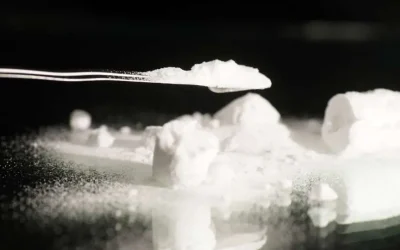Last updated: October, 2025
In a world that celebrates productivity and constant achievement, burnout has become a silent epidemic. What often begins as dedication and ambition can slowly turn into exhaustion, emotional detachment, and a feeling of emptiness. For many, this ongoing fatigue becomes more than tiredness — it becomes a doorway to addiction.
At Hacienda Paradiso, we frequently meet individuals whose struggles with alcohol, medication, or stimulants began during a period of deep exhaustion. Understanding how burnout and addiction intertwine is the first step toward genuine recovery — one that restores both balance and purpose.
Understanding Burnout
Burnout is not simply feeling tired or stressed after a long week. It is a chronic state of physical, emotional, and mental exhaustion caused by prolonged stress and overextension. It develops gradually, often in high-achieving, responsible individuals who feel an ongoing pressure to perform or maintain control.
Common signs of burnout include:
- Constant fatigue and sleep disturbances
- Difficulty concentrating or making decisions
- Emotional detachment or loss of motivation
- Irritability, anxiety, or feelings of failure
- Physical symptoms such as headaches or frequent illness
Burnout can impact every area of life: work, relationships, and mental health. When left untreated, it can quietly lead individuals toward harmful coping mechanisms, including substance use.

How Burnout Leads to Addiction
Burnout and addiction often share the same root: the need to escape from unmanageable stress. When exhaustion takes hold, the brain seeks quick relief. Alcohol, sedatives, or stimulants can offer that temporary calm or energy boost — but at a cost.
For many professionals, the pattern begins innocently: a glass of wine to unwind after a long day, a sleeping pill to manage insomnia, or extra caffeine to stay alert. Over time, these coping mechanisms evolve into dependency, as the body and mind begin to rely on them for stability.
Chronic burnout also alters brain chemistry. Elevated cortisol levels, the stress hormone, affect the body’s natural reward and regulation systems. This makes it harder to experience pleasure, increasing the temptation to self-medicate. The result is a vicious cycle: the more one uses substances to manage stress, the deeper both burnout and addiction become.
The Emotional Toll of Exhaustion
Burnout is not just physical tiredness — it is emotional depletion. Many describe it as a loss of self: the inability to feel joy, interest, or connection. When the mind is constantly overwhelmed, even small tasks can feel impossible.
This emotional numbness often drives the desire to escape. Substances such as alcohol or benzodiazepines can momentarily quiet the inner pressure, while stimulants like cocaine or amphetamines offer an artificial sense of control. But both paths lead away from healing and toward further imbalance.
For many, recognising this pattern is painful — but it is also the beginning of change. As one resident shared, “I realised I wasn’t trying to feel good anymore. I was just trying not to feel anything.”
The Link Between High Performance and Hidden Strain
Burnout-related addiction is especially common among high-functioning individuals: executives, entrepreneurs, healthcare professionals, and caregivers. These are people used to solving problems, leading teams, and taking responsibility. Yet when burnout hits, they often deny it — seeing rest as weakness or failure.
This denial makes help-seeking difficult. The pressure to appear capable often delays intervention until physical or psychological collapse occurs. Understanding that asking for help is not defeat but a courageous act is a core part of recovery.
Healing from Burnout and Addiction
Recovery from burnout and addiction requires more than stopping substance use — it involves rebuilding the foundation of wellbeing. At Hacienda Paradiso, treatment begins with restoring the body’s natural balance through supervised detox and medical care, followed by psychological and holistic therapies that address the deeper causes of exhaustion.
Our integrative approach includes:
- Therapeutic support: cognitive and emotional therapies that help rebuild awareness and resilience.
- Lifestyle restoration: sleep regulation, nutrition, and gentle physical activity such as yoga and mindfulness.
- Stress management: identifying triggers and learning healthy coping mechanisms.
- Nature-based healing: the tranquil environment of Málaga provides calm, sunlight, and space for reflection.
Healing does not mean returning to who one was before burnout — it means rediscovering balance and learning to live in alignment with one’s values and limits.
Biochemical and Emotional Restoration
Long-term stress and substance use can deplete the body’s energy reserves and disrupt hormone regulation. Restoring adrenal and cellular health through medical supervision, nutrition, and rest is essential. Just as important is emotional recovery — learning to reconnect with what brings meaning, pleasure, and purpose.
At Hacienda Paradiso, therapy is supported by holistic care: balanced meals, time outdoors, mindfulness sessions, and compassionate connection. Each element helps the body and mind gradually return to calm.
Award-winning Treatments at Hacienda Paradiso, Málaga
Recognised as the world’s first eco rehab, Hacienda Paradiso offers a unique environment where science and serenity meet. The clinic’s award-winning programmes combine evidence-based therapy, medical detox, and holistic treatment in a sustainable and private setting on the Costa del Sol.
This approach (integrating psychology, medicine, and nature) has earned international recognition, including the title of Most Affordable Luxury Rehab in Europe. Every treatment plan is designed to restore equilibrium, helping residents heal gently and sustainably.

Frequently Asked Questions: Burnout and Addiction
Burnout creates emotional and physical exhaustion that makes the brain crave relief. Substances like alcohol, prescription medication, or stimulants offer temporary comfort but quickly reinforce dependency. Over time, the individual becomes trapped in a loop where substances mask the symptoms of burnout but worsen them in the long term.
Yes. People who have never struggled with addiction can develop dependence when trying to manage chronic exhaustion or stress. Sleep aids, alcohol, or energy boosters can become daily tools for coping until the body adapts and requires them to function. Recognising this early is key to preventing escalation.
Warning signs include relying on substances to sleep, concentrate, or relax; feeling anxious without them; and noticing tolerance — needing more to achieve the same effect. Emotional detachment, irritability, and difficulty resting are also indicators that stress has become unmanageable.
Treatment addresses both the psychological and physiological effects of stress. Programmes include medical detox when necessary, individual therapy, group support, and holistic activities such as mindfulness, gentle movement, and time in nature. This integrative approach helps restore the nervous system and rebuild emotional balance.
Yes, with the right support and time. Recovery involves more than eliminating substances; it’s about creating a sustainable lifestyle where rest, awareness, and balance are prioritised. Many residents find that after treatment, they not only recover but rediscover a calmer, more meaningful way of living.








